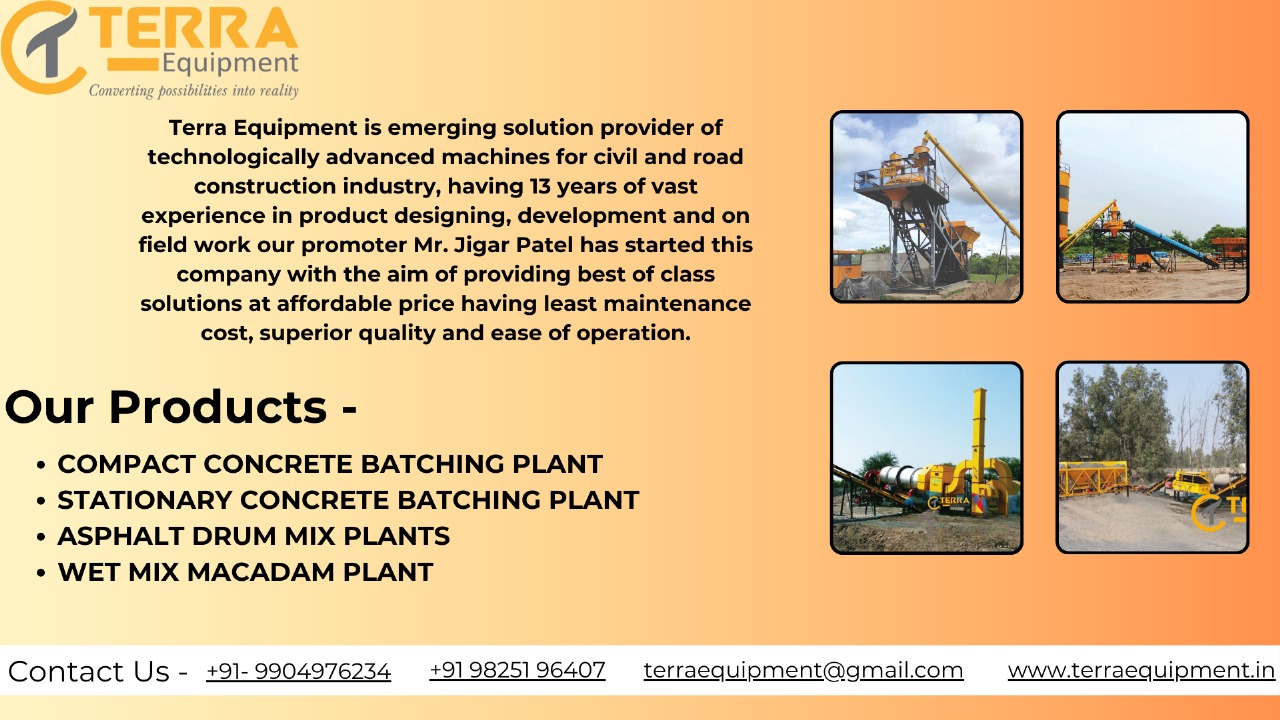Asphalt Mechanical Paver Finisher
An AsphaltMechanical Paver Finisher is a construction machine used to lay asphalt on
roads, bridges, parking lots, and other such infrastructure. It evenly spreads
the hot mix asphalt (HMA) to a pre-determined thickness and width, and provides
a preliminary compaction before final rolling. It typically consists of a hopper,conveyor system, augers, and a screed—all designed to
deliver high-quality, uniform asphalt paving with precision and speed.
10 Frequently Asked Questions (FAQs) of Asphalt
Mechanical Paver Finisher
- What is an asphalt
mechanical paver finisher?
It’s a machine used to lay and spread hot mix asphalt uniformly over a surface before compaction. - How does the paver finisher
work?
The machine receives asphalt mix into a front hopper, which is transferred via conveyor and augers to the rear screed for leveling and minor compaction. - What types of asphalt pavers
are available?
There are mechanical pavers and hydrostatic pavers, tracked or wheeled versions, depending on the project scale and surface type. - What is the screed in an
asphalt paver?
The screed is the part that levels and gives initial compaction to the asphalt layer. It controls the mat's thickness and surface finish. - What is the typical width
and thickness a paver can handle?
Widths vary from 2.5 to 9 meters with extension, and thickness can range from a few centimeters up to 30 cm depending on the machine and application. - Can the paver be used for
materials other than asphalt?
While it is primarily designed for asphalt, some models can lay other materials like wet mix macadam or granular sub-base. - What is the difference
between wheeled and tracked pavers?
Wheeled pavers are more mobile and better on hard surfaces; tracked pavers offer better traction and stability on uneven or soft grounds. - How is leveling accuracy
maintained in mechanical pavers?
Leveling sensors and electronic grade controls help maintain consistent mat thickness and slope. - What maintenance does a
paver require?
Regular lubrication, checking screed and conveyor parts, cleaning the hopper, and monitoring the engine and hydraulic systems are essential. - What safety features are
included?
Emergency stop buttons, proper lighting, backup alarms, operator canopy, and control panel safeguards are standard in modern pavers.
Applications of Asphalt Mechanical Paver Finisher
- Highways and expressways
construction
- Urban and rural road surfacing
- Airport runways and taxiways
- Parking lots and driveways
- Industrial and logistics
zone pavements
- Race tracks and sports
facilities
- Bridges and flyovers
- Service roads in residential
and commercial zones
- Cycle paths and pedestrian
walkways
- Temporary roads and access
tracks for construction sites
Benefits of Using Asphalt Mechanical Paver Finisher
- Uniform Layering: Ensures consistent
thickness and smooth surface.
- Increased Productivity: Faster laying speed
compared to manual methods.
- Better Compaction: Initial compaction reduces
final rolling effort.
- High Precision: Automatic leveling systems
ensure accurate grading.
- Cost-Effective: Reduces labor and material wastage.
- Enhanced Surface Quality: Achieves a smoother and
longer-lasting finish.
- Versatility: Can be used for various
paving projects and materials.
- Durability: Built for long-term
heavy-duty use.
- Operator Comfort: Modern pavers come with
ergonomic cabins and controls.
- Compliance with Standards: Meets road construction
quality and safety norms.
Contact us more details:
Call: +91 98251 96407 +91- 9904976234
Email:
terraequipment@gmail.com
Address: Survey No- 231, Dediyasan
Village, Opp Lilaba Weigh Bridge , Mehsana -384002 Gujarat.

